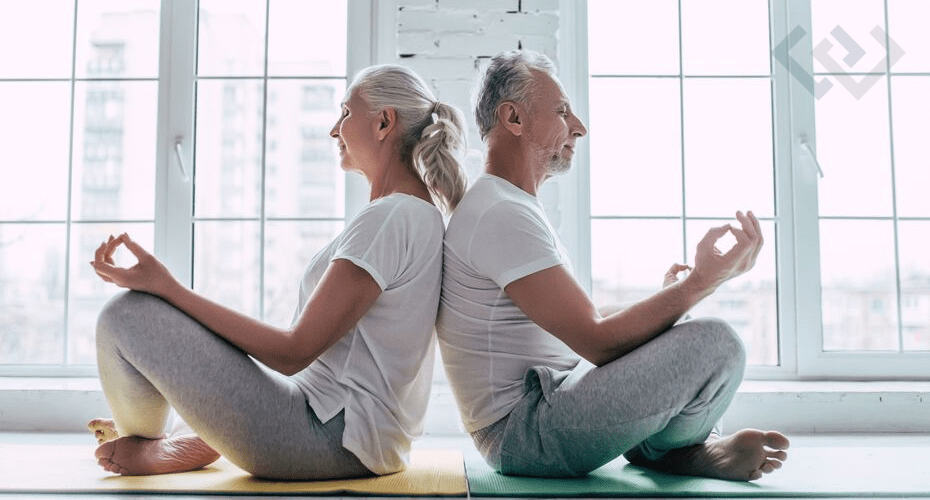Incorporate Health & Fitness Into Your Home Routines

How are those New Year’s Resolutions going? For many of us, this time of year is filled with setting high expectations for ourselves only to be let down after a few weeks. With the added stress of COVID restrictions and cold weather, it’s hard to keep your head in the game when it comes to staying healthy.
It’s not too late, though! Here are some simple health and fitness practices you can actually stick to this year from the comfort and warmth of your home:
-
Drink More Water

You’ve heard it a million times before and you will probably hear it a million times more. Drinking an appropriate amount of water each and every day is one of the best health choices you can make for your body and overall well being. The benefits of drinking water are countless with healthy skin, better brain function, improved heart health, and assistance in regulating digestion being just a few of them. Water intake is noted by countless nutritionists as being the cornerstone of healthy choices.
So what is the right amount of water to drink each day? According to the American Heart Association, it is suggested that men have about 3.7 liters of water daily and women have about 2.7 liters. That is about 15 8oz glasses of water a day for men and 11 glasses for women. A great way to kick this off each and every day is to drink 16oz of water when you first wake up in the morning. Starting off the day right makes keeping the momentum easier.
-
At-Home Exercises

Getting up, getting moving, and working your body on a day-to-day basis is vital to your current health and long-term bodily function. Individuals who begin the practice of regularly moving their bodies at a younger age are more likely to continue on as they get older and enjoy regular mobility for a longer period than their counterparts.
However, gym memberships are expensive and you may not have the equipment or the know-how for at-home workouts. Have no fear, YouTube is here! YouTube is a great resource for finding at-home workouts for all levels of fitness and workout preferences. Yoga With Adriene is one channel we highly recommend. Yoga is a great gateway exercise and one that is easy to do early in the morning before starting your day. Another option for some more cardio, HIIT, or weight options is Bodyfit by Amy.
-
Meditation/Gratitude

Health isn’t just about keeping our body in functioning order, it also has a lot to do with our mind and emotions. Wellness experts are discovering more and more that our mental health plays a greater role in our body’s function than we ever imagined. This is why regular engagement in mental health practices is so vital. Depending on the person, these practices can range from simple things like engaging in a hobby regularly to interacting with a therapist weekly.
If you’re new to practicing mental health, a simple way to start is with a daily gratitude journal. Researchers such as the Happiness Research Institute and Harvard Health have found the simple act of taking time every day to write down 3-5 things you are grateful for can have an unbelievable impact on your mental health. According to Harvard Health, “Gratitude helps people feel more positive emotions, relish good experiences, improve their health, deal with adversity, and build strong relationships.” This practice is particularly wonderful because it can be done anywhere and at any time, and is 100% free.
-
Eat More Veggies

Okay, this one might be harder to stick to than the rest… especially if you are the parent of a picky eater. But including more vegetables in your diet is not impossible and definitely worth the effort! Vegetables are not only low in fats and calories (which we get plenty of from other foods), they’re also full of vitamins and nutrients your body needs!
Eating your daily portion of veggies can help prevent infections, aid iron absorption, decreases the risk of heart disease, keeps your skin healthy, and more! Experts suggest eating 5 to 9 servings of fruits and vegetables a day, but talk to your doctor if you want more specifics on how many veggies you should have in your diet!
-
Set an Alarm to Go to Sleep

Most adults simply do not sleep enough! According to the CDC, 1 in 3 adults don’t get adequate sleep. Getting a good, restful 8 hours of sleep each night can drastically improve your overall health! Setting a daily alarm to remind yourself when it’s time for bed is a great way to make sure you’re not staying up too late and forgetting to check the time.
Having trouble falling asleep? Don’t look at your phone in bed! The blue light from cell phones has been shown to negatively impact sleep by suppressing melatonin and keeping your brain awake. So set the phone aside and break out a good book before you turn out the light instead!

 Facebook
Facebook
 X
X
 Pinterest
Pinterest
 Copy Link
Copy Link